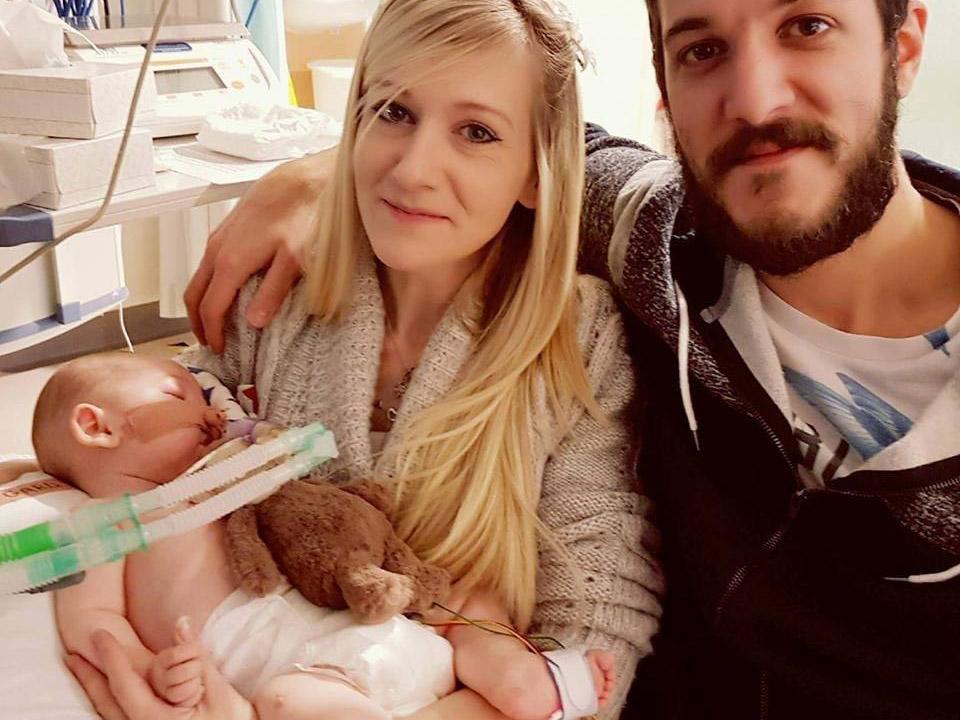Charlie Gard is only 11 months old, but his short life has stirred a controversy concerning the ethical limits of medicine.

Charlie has a rare, genetic and incurable disease that has now involved doctors, three British courts, the European Court of Human Rights, as well as hundreds of thousands of petitioners, including Pope Francis and President Trump.
The bottom line is this: according the British healthcare system, the doctors and courts have ruled that little Charlie’s life is unsustainable in his present condition, and he will be unable to live anything approaching a normal life as he depends entirely upon life-support systems. It would, according to the doctors and the courts, be in his best interests, to turn the machines off and allow him to die.
Charlie’s parents, Connie Yates and Chris Gard, disagree, believing that as long as there is a chance for their son’s survival, they should, as parents, be permitted to make that choice.
The chance comes in the form of experimental therapy in the U.S.
“Dr. Michio Hirano,” Britain’s Independent writes (July 20), “a neuroscientist from Columbia University in New York, is said to have spent over five hours trying to convince doctors, along with an expert from a Vatican hospital in Rome. The specialist told the High Court nucleoside therapy has a 10 percent chance of improving Charlie’s condition, adding his research ‘clearly indicates’ it reduces muscle weakness in patients with a similar genetic disorder.
“ ‘This is the best scientific data we have,’ he told the judge last week, adding he was prepared to extrapolate the findings on patients with TK2 depletion to Charlie’s genetic deficiency. ‘These are small numbers, but with very rare diseases we must use every patient and gather as much detail from each patient as possible.’
“He said he hoped a high dose of nucleosides, which are found naturally in the body, would enter Charlie’s cells, affect the mitochondria and prove ‘therapeutic.’ ”
While I’m sure Dr. Hirano hopes for the best outcome for Charlie, his wording makes it sound like he’s more interested in finding patients on which to “gather as much detail… as possible.”
Despite the ruling from the British courts, “Nebraska representative Jeff Fortenberry said an amendment has been passed ‘that grants permanent [U.S.] resident status to Charlie Gard and family so Charlie can get the medical treatment he needs.’ ”
Charlie’s parents have raised the $1.5 million dollars it would take to transport him to New York and receive the experimental care.
Time magazine writes (July 24), “ ‘In the U.S. we have created a culture where everybody should get whatever health care they want,’ says David Magnus, director of the Center for Biomedical Ethics at Stanford University. ‘As long as neither neglect nor abuse is involved, we give parents tremendous latitude in making decisions for their children.’
“That’s not the case in the U.K., in large part because of the country’s single-payer national health system. It’s more routine for the medical community, and the courts, to make decisions about what’s acceptable care, what’s excessive care and even, as in Charlie’s case, when care should stop.”
In a July 6 Letter to the Editor to The New York Times, Kenneth Prager, director of medical ethics and professor at Columbia University Medical Center writes, “The Court of Human Rights said, ‘it was most likely Charlie was being exposed to continued pain, suffering and distress’ and that exposing him to futile treatment ‘would offer no benefit, and continue to cause him significant harm.’ But this reasoning is open to serious question.
“It is difficult, if not impossible, to assume correctly that patients with devastating brain damage are truly suffering or in pain. Presumably, if Charlie’s physicians felt that he was in pain, they would treat it aggressively.
“While there might be other arguments to remove life support in this tragic case — and doing so would not be unethical if the parents chose to do so — the suffering or pain argument does not hold water. And as for what is in this infant’s best interests, society must think twice before arrogating to itself the power to override the assessment of parents and determine that their child is better off dead than alive.”
While I’m not a specialist in medical ethics, the fundamental conflicts appear to surround the values of compassion and responsibility. However, both stakeholders – the parents and doctors — appear to be facing this issue with different definitions.
The British doctors and courts have ruled that the more compassionate and responsible decision would be to remove young Charlie from life-support equipment and allow him to die, avoiding any potential pain and suffering, not to mention surviving solely by machine.
The parents are facing a similar crisis of conscience: compassion for the life of their only son along with their responsibility as parents to utilize whatever chance is available to them to keep their son alive, even if that chance is small.
Thus far, I have seen no reports from British doctors stating that the baby is in any pain or discomfort.
If Charlie has been granted immediate U.S. citizenship, the parents are financially able, and U.S. medical resources are willing to offer experimental therapy, they should, in my opinion, be permitted to come to the U.S. and seek treatment for their child. My only hope is that Dr. Hirano has unequivocally made clear to them all details of the treatment, potential side-effects as well as the small chance that the experimental treatment would yield results that would lead to a sustainable life.
Given the factors reported and absent any uncessary harm to Charlie, I side with allowing the parents to make any final decision regarding the health and welfare of their son.
Update: Charlie Gard quietly passed away Friday, July 28, after being removed from the ventilator that was keeping him alive.
Comments










